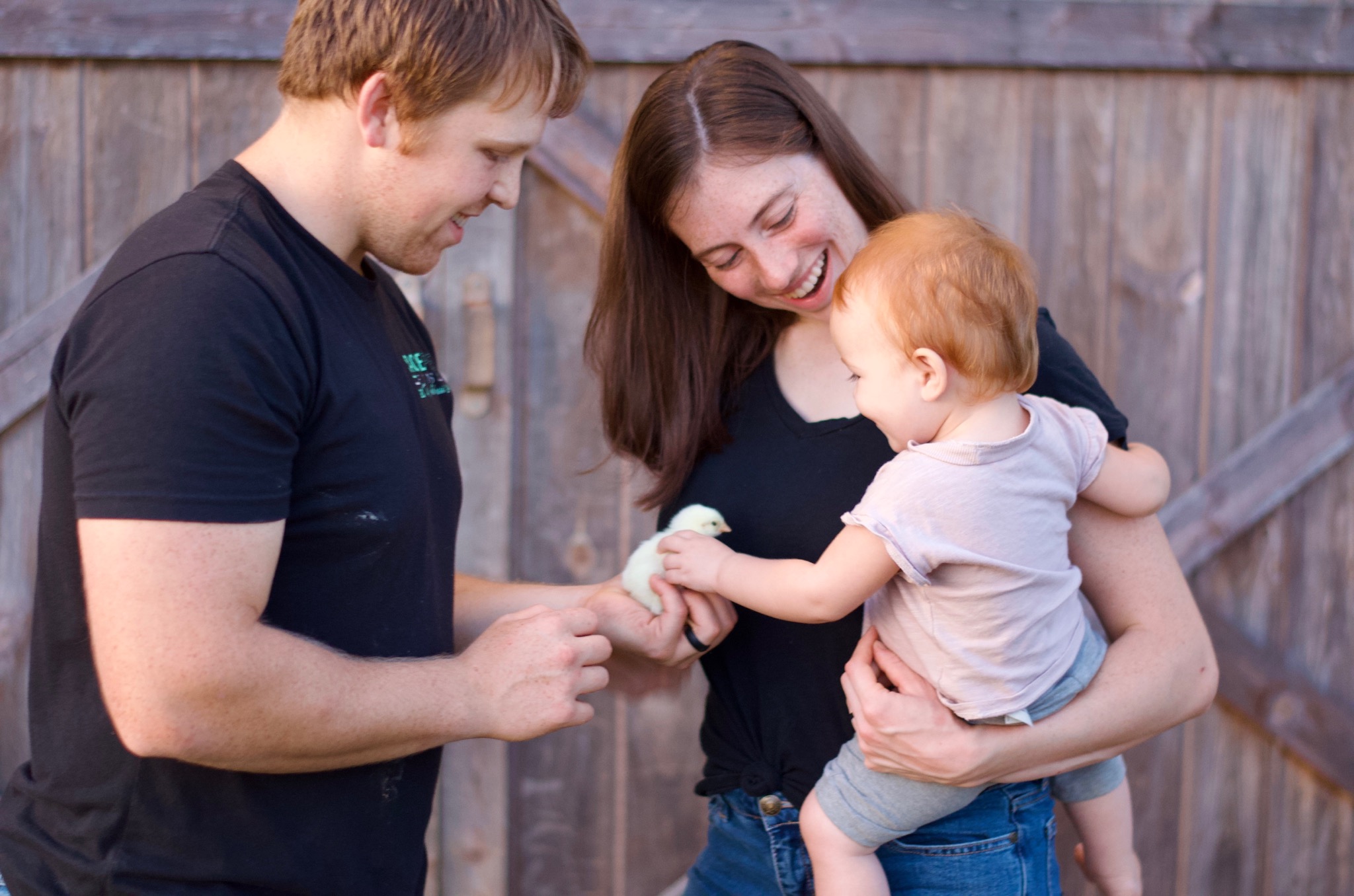
Get to Know the Horuns!
We are the Horuns (Drew, Hannah, and Ruthie)!
Neither of us grew up on a farm. Drew grew up in the suburbs of New Jersey and Hannah grew up outside of Baltimore City. However, we both were outside or caring for animals any chance we got.
Our homestead began with an ongoing conversation we had while dating. To give you a glimpse into our relationship, I'll share the topic we talked about on our first date... goat births! After getting married, starting our family, and settling in the foothills of North Carolina, we are overjoyed to start on our journey to create a homestead of our very own.
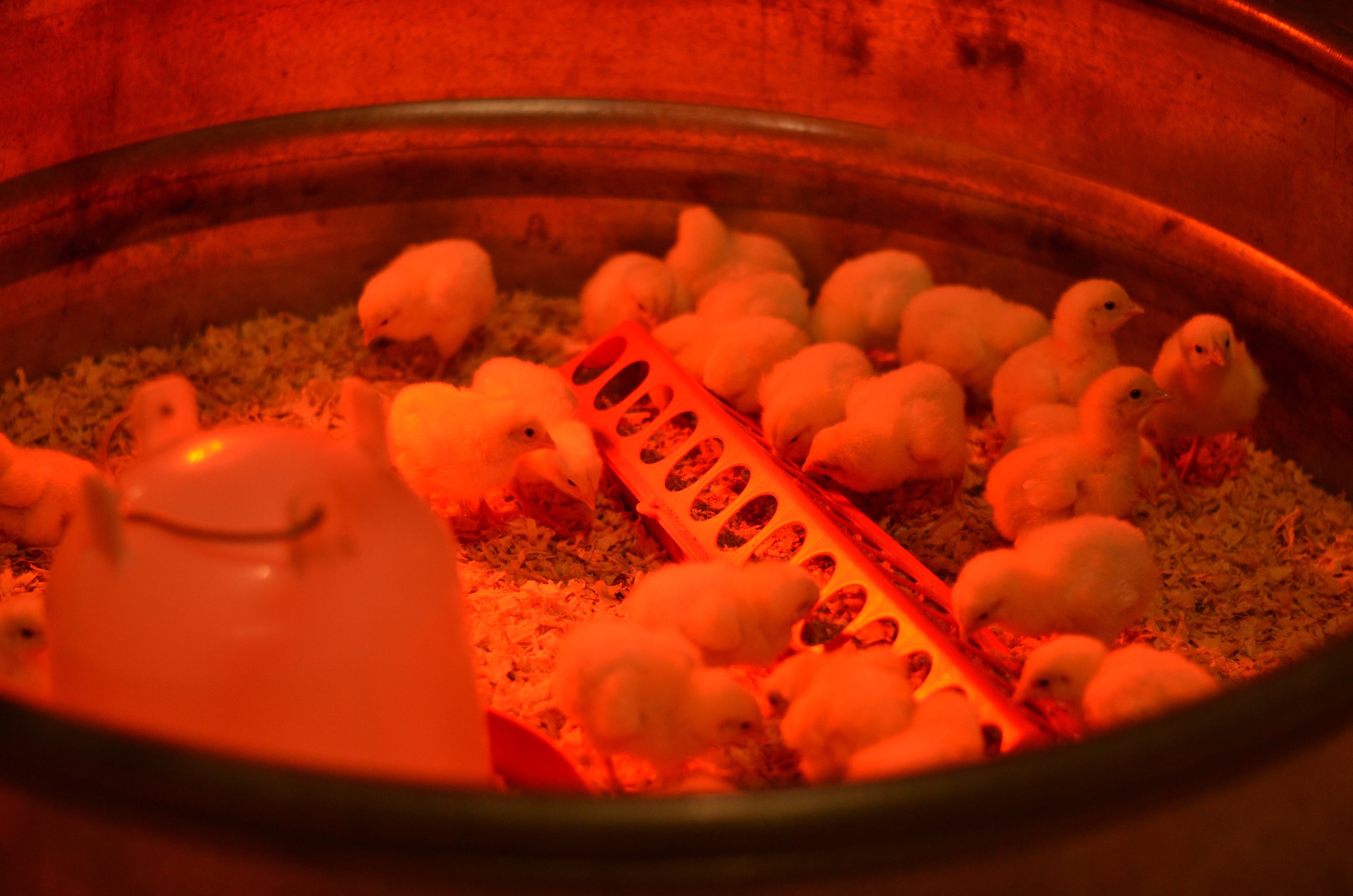
The Brooder
Our chicks remain in the brooder for 14-18 days. We utilize the Deep Bedding Method. We start off the season with 8 inches of fine shavings. Rather than scooping out the "old stuff," we add 1-2 inches of shavings when the brooder becomes moist or smelly. This method increases beneficial bacteria, warmth, and snacks (AKA protein rich bugs). Even our smallest chicks are able to turn over the bedding and aid in the composting process. At the end of the season what is left in the brooder is "gold."
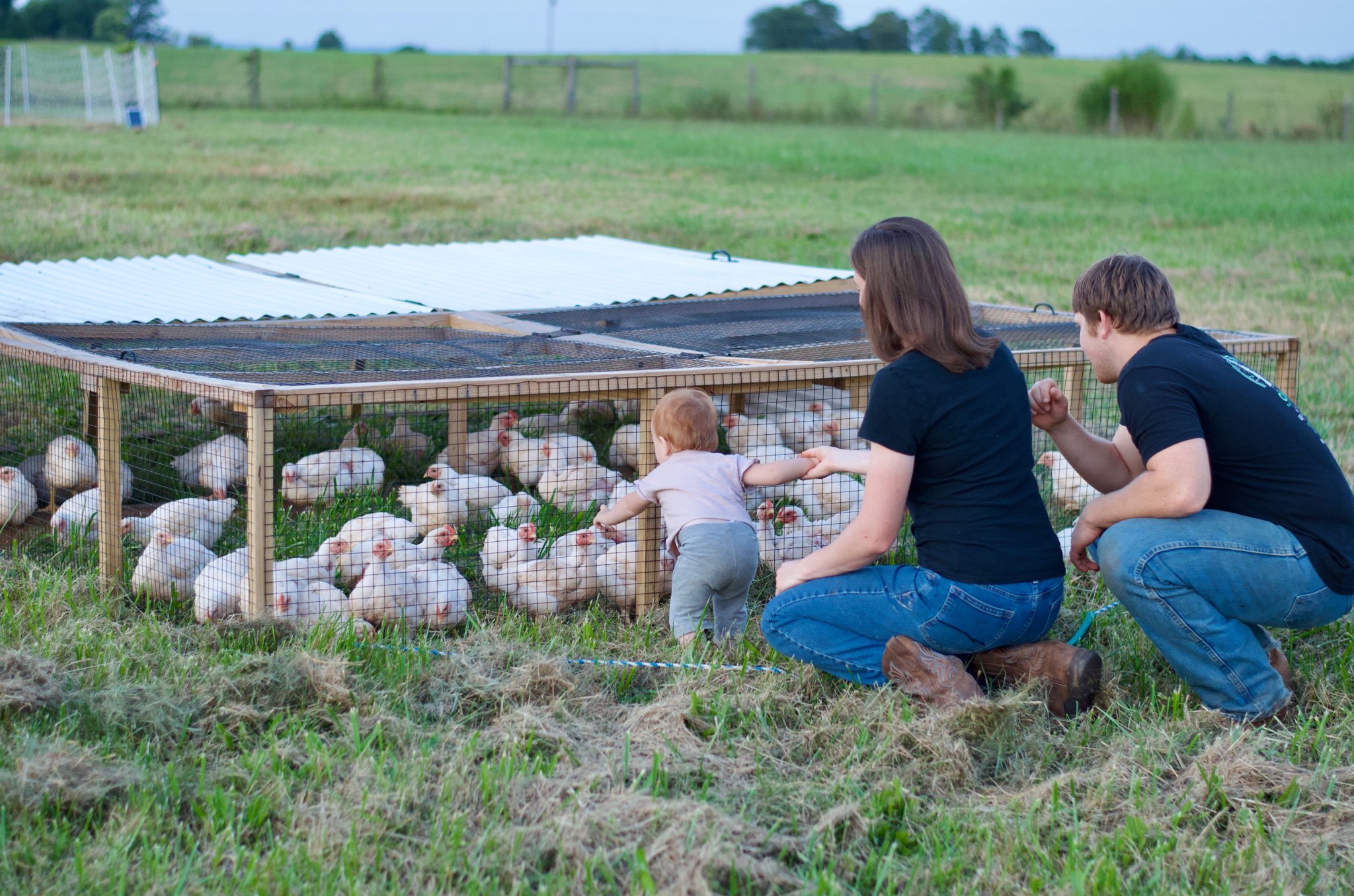
The Tractor
A chicken tractor is a regenerative agriculture tool that enables us to pasture raise our birds in a productive and beneficial way. If we were to give our birds access to all 20 acres at once, they would cherry pick the “candy” grass and leave behind other nutrient packed varieties and weeds. By placing our birds into a moveable, 10x12 structure, we eliminate that problem. This encourages the birds to eat all of the grass and weed varieties within the tractor, and concentrates their manure, which fertilizes the soil. This technique benefits the birds, the land, and, consequently, our health.
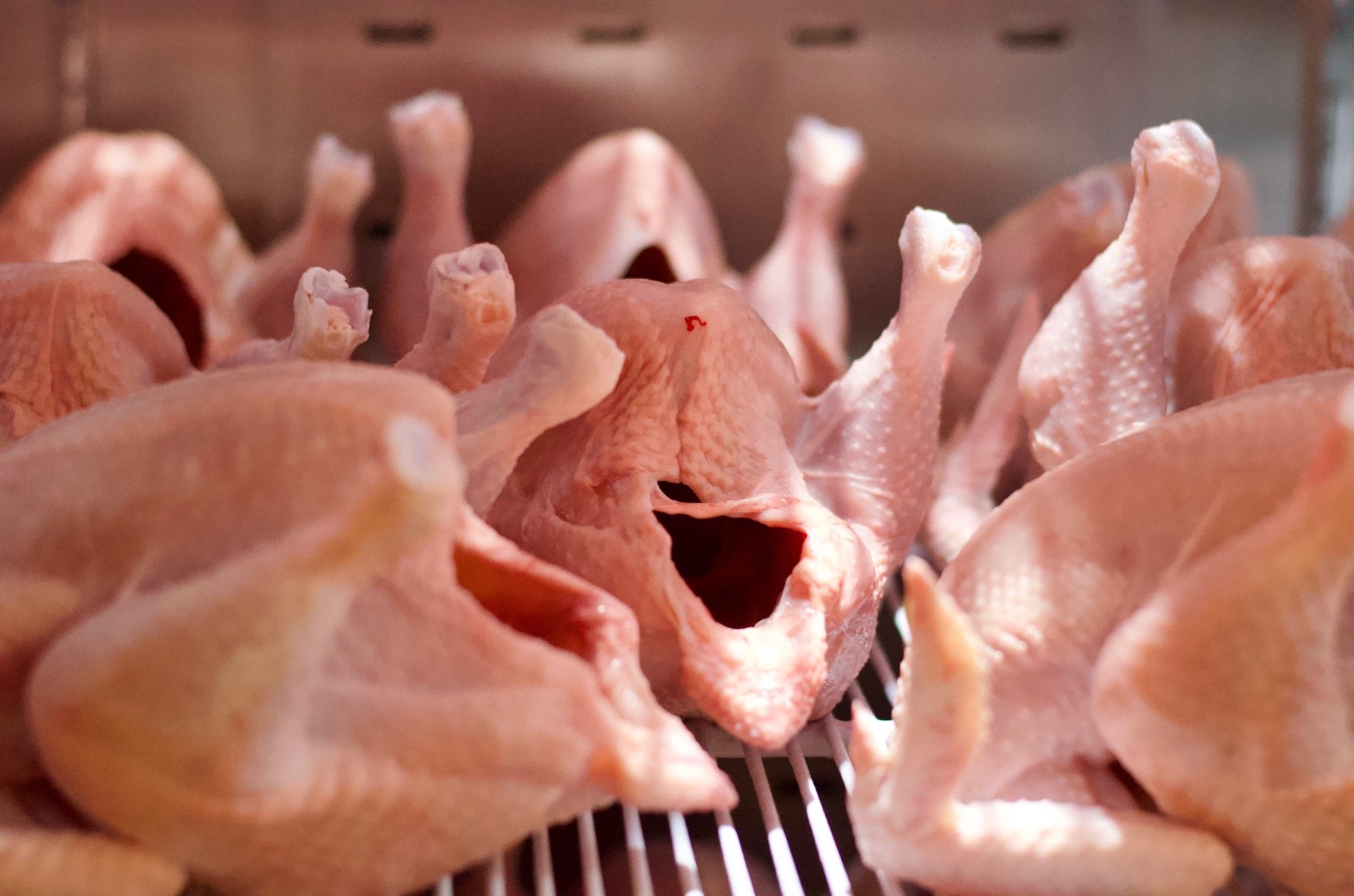
Processing Day
Our hands are on the entire process. We've found that butchering on the homestead keeps our birds stress levels low and positively impacts their welfare and the quality of their meat. The process is simple: slaughter, scald, pluck, eviscerate, and chill. No chemicals and no sitting in "fecal soup." We rinse the meat with water and place it in the cooler. You can taste the difference.
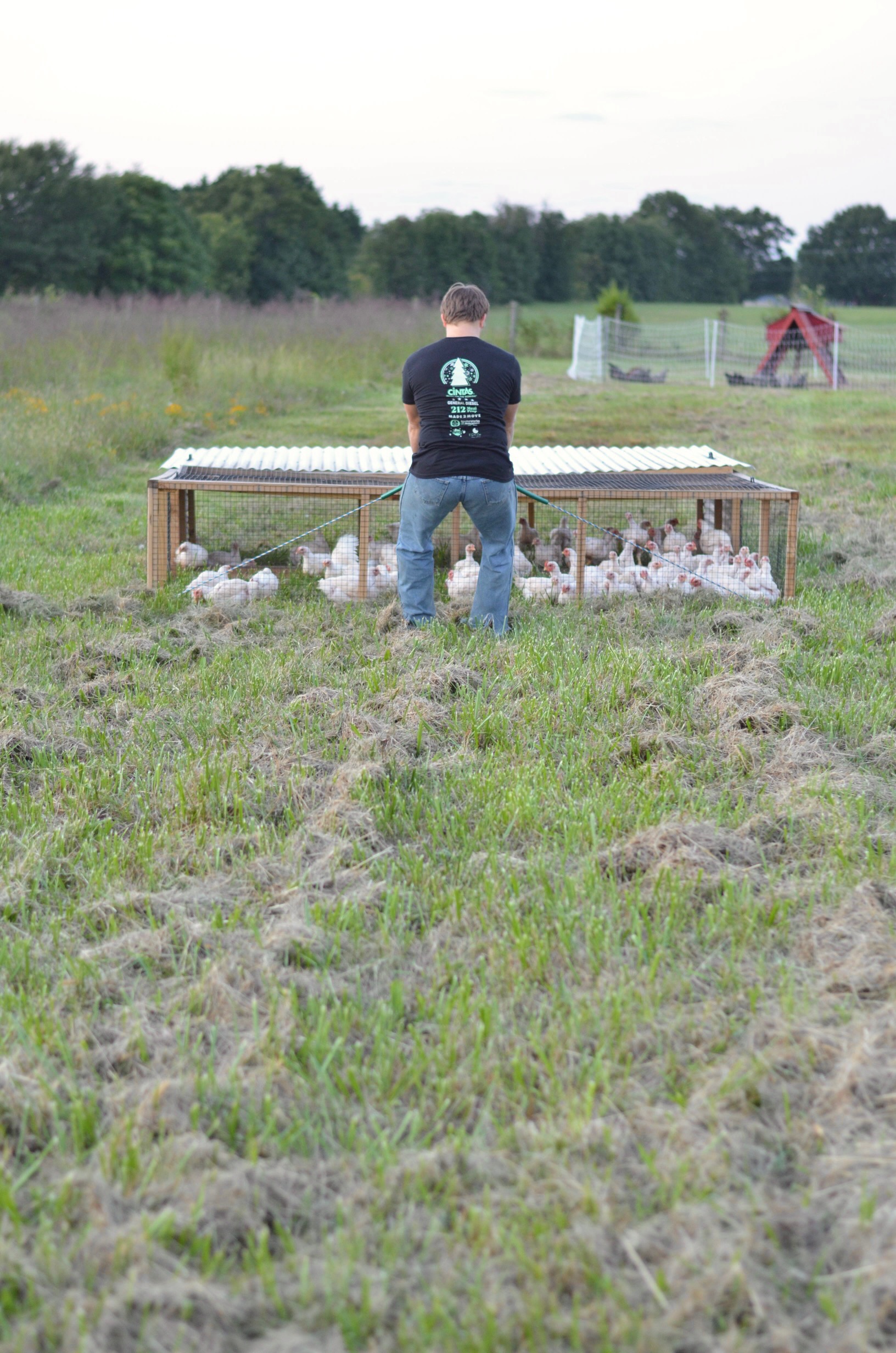
What is Regenerative Agriculture?
Nearly all commercial farming operations have moved away from rotational grazing and companion planting. In an effort to increase their profits, they have moved towards livestock confinement and monoculture. As a result of these modern practices, livestock need to be pumped full of vaccines and antibiotics and given heavily processed feed. Industrial farming destroys the soil, depleting it of essential nutrients until the only way to grow anything is through the heavy use of chemicals. This means that nutrient deficient food that was covered in or injected with toxic chemicals is being sold to the modern consumer.
Rather than putting animals through terrible conditions and stripping the land of nutrients, regenerative agriculture utilizes holistic practices to grow animals and rebuild and enrich the soil. For example, regenerative farmers use manure to fertilize fields rather than chemicals. We made our homestead into an interconnected ecosystem between the animals and the land. Not only is it a form of agriculture, but it is also a movement that promotes sustainability and health for our land, animals, and community.
No. Complying to USDA standards would mean compromising our meat. The USDA requires farmers to use chlorine baths to "sanitize" meat along with other procedures that we do not agree with. We want to offer our community the most nutritious and flavorful meat possible, and we refuse to compromise our standards.
Week 1-3 our chicks eat Organic Soy-Free Broiler Starter Feed (KOFFI) with 22% protein. Week 4-9 our birds eat Organic Soy-Free Broiler Grower Feed (KOFFI) with 20% protein. While chicken feed fills the majority of their caloric needs, once our birds are out on the pasture, they consumer various varieties of grasses, weeds, and insects. We supplement our chickens feed with organic herbs, organic apple cider vinegar, and organic honey to aid their growth and immunity as well.
Choosing a farmer is an important decision and we are grateful you are considering us. We are a small family farm focused on rebuilding our pastures and raising high quality meat for our community. Our passion for regenerative farming and health drives all of our efforts. Through social media, newsletter, and farm visits, we are creating a direct link from our homestead to your table that provides you confidence that you are sourcing the best meat. Choosing Horun Family Homestead means regaining control of your food and rebuilding the pastures of our community.
We attend both the Columbus and Rutherford County Farmers Markets. Sign up for our newsletter or head to our Instagram account to view our monthly schedule. We also offer farm pick-ups by appointment.
Yes! We always enjoy showing our community our homestead and creating a stronger bond between farmer and consumer. Farm visits are by appointment only, please reach out to info@hfhomestead.com to schedule an appointment.
Not yet! We are raising pigs and cows for our small family currently and plan to expand our herd for Horun Family Homestead within the year.
